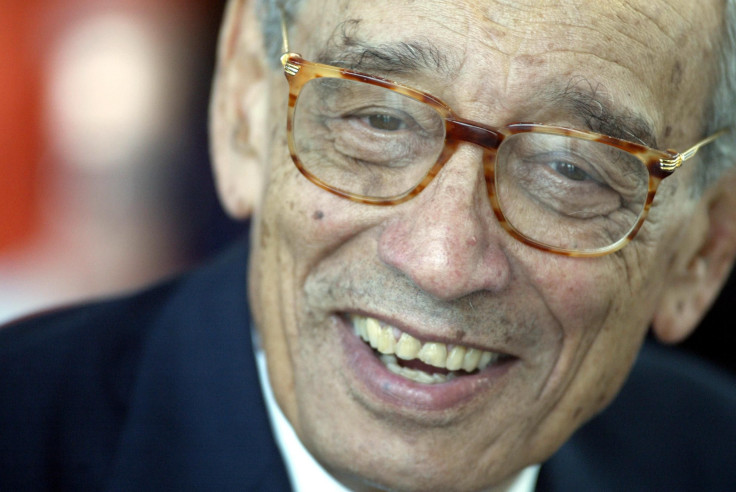Who Was Boutros Boutros-Ghali? 5 Quotes And A ‘Seinfeld’ Reference To Honor Former UN Secretary General

Boutros Boutros-Ghali, former secretary-general of the United Nations, died Tuesday in Cairo, leaving behind a legacy of diplomacy both in the peacekeeping organization and in his home country of Egypt. Boutros-Ghali, 93, was the first Arab and first African to serve in the position.
Boutros-Ghali was born into a Coptic Christian family in 1922 and grew up in Egypt. He attended university in Paris and went on to become a top adviser to former Egyptian President Hosni Mubarak.
He served a five-year term as U.N. secretary-general from 1992-1996, a period rife with conflict throughout the world. His tenure saw violent crises in Rwanda, Bosnia and Herzegovina, and the Gulf states, and he was often criticized for not intervening quickly enough in situations of genocide. Boutros-Ghali, for his part, blamed the U.N. Security Council and the U.S. in particular for the organization’s ineffectiveness in this period.
In tribute to the late secretary-general, here are five quotes (and one “Seinfeld” reference) to remember him by.
1. Boutros-Ghali fired back at his critics, slamming U.N. member states for not reacting quickly enough in crisis situations, particularly in Rwanda, often butting heads with the U.S. government led by President Bill Clinton. “The concept of peacekeeping was turned on its head,” he said on his last day in office, adding, “and worsened by the serious gap between mandates and resources,” the New York Times reported.
For many U.S. citizens unfamiliar with the work of the secretary-general, the first exposure to the diplomat was through an oft-quoted reference in the 1989-1998 sit-com “Seinfeld.” The main character, Jerry Seinfeld, is at the beach with his friends Elaine and Kramer when they spot a topless bather. “Boutros Boutros-Ghali!” Seinfeld exclaims.
As @UN Secretary General, Boutros Boutros-Ghali "sharply divided world opinion" https://t.co/vcJyUOgnB8 pic.twitter.com/6tgfIxVXXs
— BBC Breaking News (@BBCBreaking) February 16, 2016
2. “A genocide in Africa has not received the same attention that genocide in Europe or genocide in Turkey or genocide in other parts of the world. There is still this kind of basic discrimination against the African people and the African problems,” Boutros-Ghali told PBS in a 2004 interview that discussed the genocide in Rwanda.
3. Speaking on the Rwandan genocide, Boutros-Ghali told PBS in the same interview, “But at the beginning, our definition of the genocide was what happened to Armenia in 1917 or 1919, it’s happened to the Jew in Europe, and we were not realizing — in our point of view, they have not the tools to do a genocide.” He added, “This was our perception — which was the wrong perception — [that] you need to have a sophisticated European machinery to do a real genocide.”
4. “We have entered a time of global transition marked by uniquely contradictory trends. Regional and continental associations of States are evolving ways to deepen cooperation and ease some of the contentious characteristics of sovereign and nationalistic rivalries,” Boutros-Ghali wrote in his 1992 treatise “An Agenda for Peace.”
5. “The concept of peace is easy to grasp; that of international security is more complex, for a pattern of contradictions has arisen here as well,” he wrote in the same document.
© Copyright IBTimes 2024. All rights reserved.






















